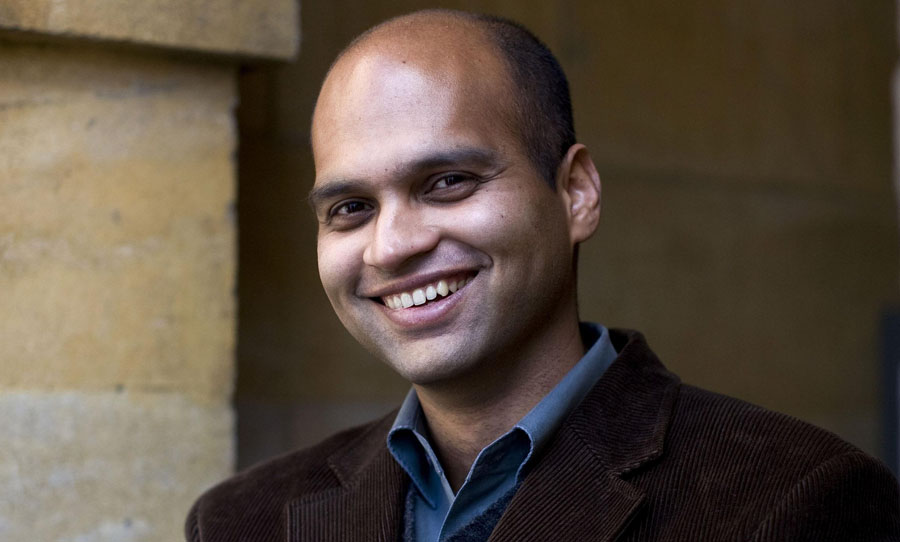Since bursting onto the literary scene with his incendiary debut, the Booker Prize-winning The White Tiger, Aravind Adiga’s career has been marked with strikingly original perspectives on life in his native India. In Amnesty (Pan Macmillan), Adiga turns his sights toward Sydney, detailing a day in the life of Danny – an immigrant from Sri Lanka, who’s been living illegally in the storeroom of a supermarket.
Danny makes ends meet as the self-proclaimed “Legendary Cleaner“, bouncing from apartment to apartment in the privileged inner-city suburbs. But his fragile peace is upended by the murder of one of his clients. Justice depends on Danny risking his fragile status as an Australian. 
Booker Prize-winning novelist Aravind Adiga’s latest work is Amnesty. It’s an intense psychological battle, presenting Sydney through a new lens.
Danny (original name Dhananjaya Rajaratnam) is a Tamil man from the Sri Lankan coastal town of Batticaloa. Beyond four years into his Australian life, however, he sought to shake off the tell-tale signs of his immigrant status. His desire is driven by fear: of home and of being exposed. The paradoxical pain— the reality of being a Tamil in Sri Lanka—is summed up in all early passage:
“… once you found out what that word minority means over here, tasted the intoxicant of being wanted because you were not like everyone else, how could anyone possibly tell you to go back to Sri Lanka and once again live as a minority over there.”
Danny’s life in Sydney is dichotomous: the legal and the illegal. He speaks of the “eyeshock” recognition between the immigrants from the subcontinent – the passing recognition and instant, paranoid unsaid examination of legal status. The duality extends to the neighbourhoods that he traverses daily:
“Now no part of the city was safe from the immigration machine, but Glebe was a glade inside Sydney’s rainforest of light—leafy, lefty, defiantly full of churches—and when you came and stood here, on Broadway, and saw, a few feet away two palace-like shopping malls, identical twins, each crowned by a globe, then you knew you were at the end of Glebe’s special protections.”
Danny discovers that one of his clients, Radha Thomas, has been murdered. Though the time-stamped chapters propel us onward throughout the day, the narration sojourns into the past, where the relationship between Danny, Radha and another of his clients, Prakash, develops.
Radha embezzled thousands of dollars from her cushy government job and gambled it all away on the pokies. As penance, she attended a support group for problem gamblers, where she met Prakash and the relationship quickly spirals into an affair. Prakash lives rent-free in Radha’s Pott’s Point apartment, unbeknownst to her husband, who is unwittingly funding their escapades.
After seeing details of the murder on news reports, Danny suspects Prakash. He knows he should alert the authorities, but in doing so, he risks being sent home. The two are enmeshed in a cat and mouse game that tests Danny’s resolve to the limits. 
Adiga’s mastery is how he can take a microscope to the relationship between Danny and Prakash, while simultaneously telling the story of Sydney via a rare perspective: a perpetual outsider’s. “Sydney had become a city full of bad magic and interdictions, places he must never visit again…” reads a passage that underscores the fact that Danny must always look over his shoulder. He’s gone to the length of reshaping his identity, only to have tortured interactions with the city that the more privileged among us take for granted every day.
The scattershot rhythms of Adiga’s prose take some acclimatising, but his style eventually reminds you why he’s garnered so much acclaim. His razor-sharp insights about our fair city are like a gut punch, but Amnesty is also steeped in irrepressible humanity that speaks universally.
Amnesty is out now via Pan Macmillan.


